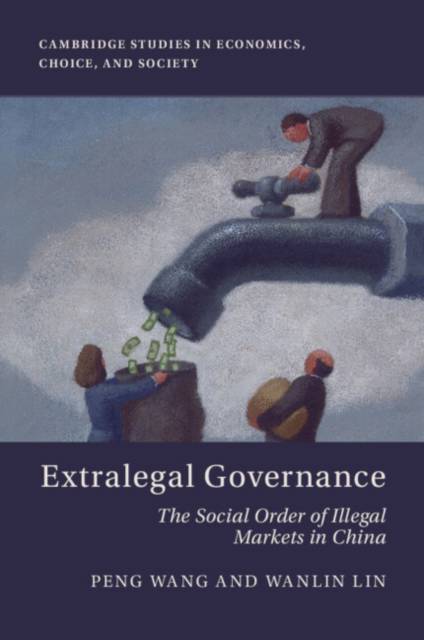
Bedankt voor het vertrouwen het afgelopen jaar! Om jou te bedanken bieden we GRATIS verzending (in België) aan op alles gedurende de hele maand januari.
- Afhalen na 1 uur in een winkel met voorraad
- In januari gratis thuislevering in België
- Ruim aanbod met 7 miljoen producten
Bedankt voor het vertrouwen het afgelopen jaar! Om jou te bedanken bieden we GRATIS verzending (in België) aan op alles gedurende de hele maand januari.
- Afhalen na 1 uur in een winkel met voorraad
- In januari gratis thuislevering in België
- Ruim aanbod met 7 miljoen producten
Zoeken
€ 54,95
+ 109 punten
Uitvoering
Omschrijving
Drawing on insights from sociology and new institutional economics, Extralegal Governance provides the first comprehensive account of China's illegal markets by applying a socio-economic approach. It considers social legitimacy and state repression in examining the nature of illegal markets. It examines how power dynamics and varying levels of punishment shape exchange relationships between buyers and sellers. It identifies context-specific risks and explains how private individuals and organizations address these risks by developing extralegal governance institutions to facilitate social cooperation across various illegal markets. Adopting a multiple-case study design to sample China's illegal markets, this book utilizes four cases - street vending, small-property-rights housing, corrupt exchanges, and online loan sharks - to examine how market participants foster cooperation and social order in illegal markets.
Specificaties
Betrokkenen
- Auteur(s):
- Uitgeverij:
Inhoud
- Aantal bladzijden:
- 228
- Taal:
- Engels
- Reeks:
Eigenschappen
- Productcode (EAN):
- 9781009622172
- Verschijningsdatum:
- 25/09/2025
- Uitvoering:
- Paperback
- Formaat:
- Trade paperback (VS)
- Afmetingen:
- 152 mm x 229 mm
- Gewicht:
- 308 g

Alleen bij Standaard Boekhandel
+ 109 punten op je klantenkaart van Standaard Boekhandel
Beoordelingen
We publiceren alleen reviews die voldoen aan de voorwaarden voor reviews. Bekijk onze voorwaarden voor reviews.









